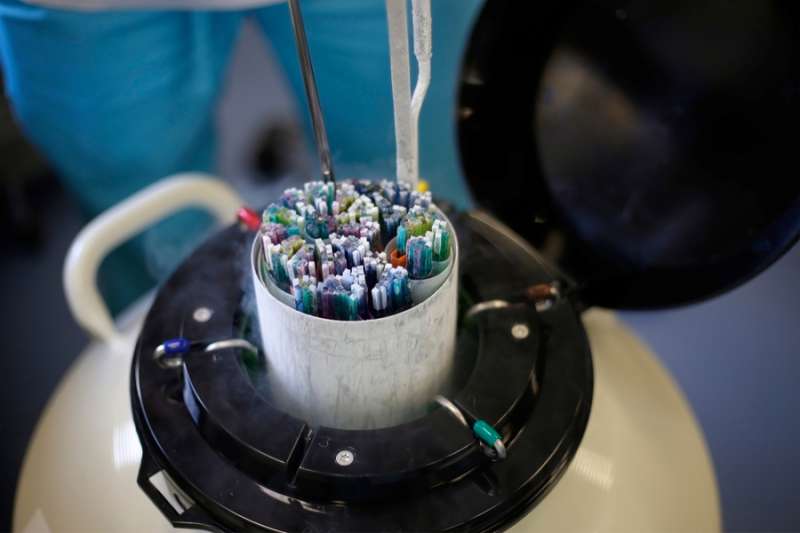A new Arizona law awards contested custody of frozen embryos to the parent seeking to “develop them to birth.” A Catholic bioethicist told CNA it was a “positive development” in an otherwise unusual ethical situation.
The law, which came into effect July 1, is first of its kind in the United States. It was partly inspired by a custody dispute over frozen embryos. Ruby Torres, a 37-year-old woman from Arizona, and her ex-husband John Joseph Terrell created the embryos prior to Torres’ treatment for breast cancer, when she was told she was unlikely to conceive after radiation and chemotherapy. They married shortly thereafter, divorcing three years after she had finished cancer treatments.
Seven embryos were created and remain frozen in storage. Torres told the judge during divorce proceedings that she wanted the embryos,calling them her last chance of having a biological child. Terrell protested, saying he did not want to become a father or be responsible for supporting a child.
Last year, the judge ruled that the embryos should be donated, but not to Torres. She appealed this decision. The law does not apply retroactively to this case or other similar cases.
In other custody disputes, judges have ordered frozen embryos to be either destroyed, remain frozen until an agreement can be made, or donated for use in research purposes. Rarely have they been awarded to a person seeking to actually gestate a child.
Should an embryo be successfully carried to birth, the Arizona law does not make the unwilling party liable for child support.
Critics of the law say that it “forces” people to become parents against their will. Dr. Ted Furton, director of publications at the National Catholic Bioethics Center, said that this argument is the result of a mentality that considers embryos to be property, not human life.
“As soon as you produce embryos, the man and wife are parents,” Furton told CNA in an interview. “Parenthood doesn't happen later, it happens at that moment.”
“So, they're already parents. What they don't realize when they say 'I don't want to be a parent'--it's too late.”
Furton said that he thought the law’s recognition of an embryo as a human life and not as a form of property was a “very positive development” and a “good sign,” and that he is hopeful these kinds of laws would help people “to better understand that these are indeed human lives, and like every human life, deserve protection.”

